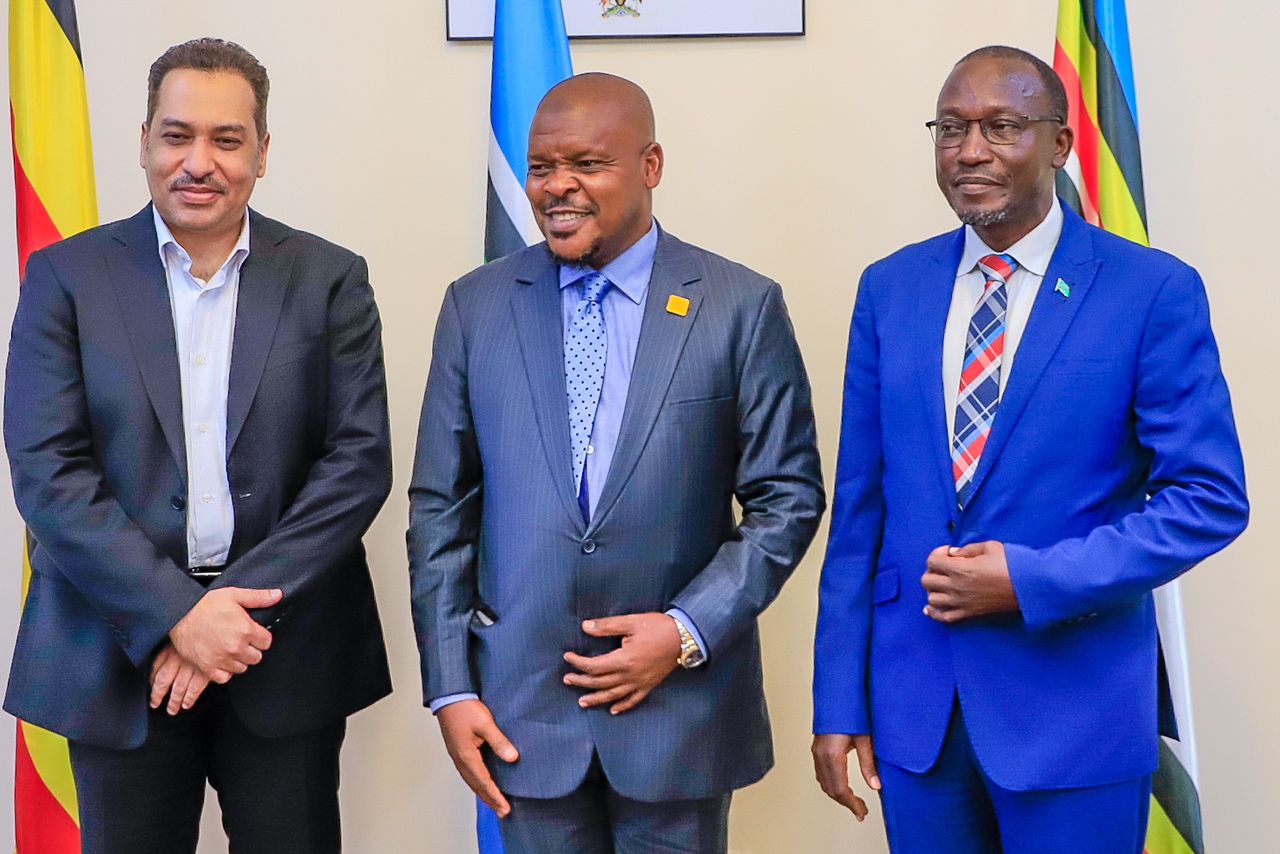Dfcu leads Ugandan banks in digital financing drive
In this day and age where technology is taking over the digital space, it is a rather dramatic era for the banking industry, as digital disruption has forced many incumbent banks to step out of their comfort zone and up their digital game
Changing customer behaviour, increasing expectations, omnichannel experience and the digitization of business and society, in general, have brought along what some people call the digital arms race in banking. Banks around the world are realizing how investments in digital technologies could benefit customer acquisition and satisfaction.
Digital transformation is taking place in Uganda's financial services industry, with a host of non-bank innovators offering both customer-facing and back-office fintech products and services. While banks are applying “Mix n Match” strategic models in their digitization process, Uganda's fintechs are offering point solutions in product areas such as payments, remittances, savings, personal financial management, small and medium-sized enterprises (SMEs), lending, and insurance.
With a large population of young smartphone users, a high level of internet penetration, high consumer growth, a low employment rate, and a low ratio of banked citizens, Uganda is becoming a promising market for digital transformation. There exist huge opportunities and bright prospects for the country’s digital banking and financial services development.
Nile Post's Frank Semata caught up with Jonathan Lloyd Busulwa, head of alternative or digital service channels in dfcu bank for an interview to understand the progress and how digital banking is performing in Uganda's banking sector.
In a nutshell, kindly make us understand what digital banking means?
Digital banking is basically delivering banking services to customers on digital or online platforms. This includes activities like money deposits, withdrawals and Transfers, checking/Saving, account management, applying for financial products, loan management, bill payment.
Uganda’s banking sector has been undergoing a digital transformation. What would you say is the progress?
There has been steady progress of digital transformation countrywide. We are seeing a lot of innovations and products that are being churned out with the different financial players in the market call them banks, fintechs and payment service providers. Why the progress? The recent 2019 projection statistics by UBOS showed that 80% of Uganda's population is under 35 years of age. This is an age group that is very versed with technology and digital platforms and if you want to serve them hook them there.
Let’s talk about financial inclusion. To what extent would you say Digital Banking has driven financial inclusion?
Financial inclusion means availability and quality of opportunities to access financial services to everyone wherever they could be. According to research done by Finscope, showed the financial penetration in certain economies and particularly in Uganda, the Finscope survey of 2018 compared to that of 2013, you'll note that their is a growth of people who access financial services countrywide from about 4/10 adults in 2013 to about 6/10 adults in 2018. The digital platforms are playing a major role in financial inclusion.
Telecoms with their Mobile Money and Banks with digital products are often seen as being directly in competition. Are we seeing cannibalisation of products?
Telecoms have their customers same applies to banks and they are more or less the same customers. Services being offered by the telecoms are almost the same services being offered by the banks but does the end user benefit, for instance compare bank charges with that of telecoms, security, interest on savings, limits, with the bank you can deposit or withdraw any amount of money which is restricted with mobile money. There is a lot of synergies and partnerships that are happening between telecoms and Banks, loans from the bank and receive it on your phone all aimed at offering the best to the customer.
Dfcu Bank has been on the digitisation journey since 2017, what impact has this had on the quality of service and operations of the business?
A bank that is to stay in the market has to innovate and embrace the day today affairs in the market, there is a lot of technology that is developed every day and if you have to stay relevant in this market you have to keep up with the trends, with the operational efficiency, you can serve more customers with the help of technology.
Dfcu Bank rolled out a revamped online banking platform, which you call Quick Banking in 2018. What would you say has been the adoption rate to date?
Quick Banking is a channel that supports customer transactions using a mobile phone or internet banking and can be accessed by all segments either on internet or on mobile phone by use of the USSD code. At the close of 2019, we had over 10% of the total transactions carried out through the quick banking channel which shows good will from the customers, we want to see that number go up and we are doing some adjustments on the channel and you'll be seeing a more robust channel in the second half of the year and the adoption will be much more better.
A lot of people tend to be apprehensive when it comes to online/ digital transactions and this can affect uptake of services. Talk to us about the risks and how these are being mitigated by dfcu Bank.
There is a lot of cyber fraud involved, information plagiarism. We have invested a lot in our cyber security team both in human resource and staff cyber hackers and developers. We work with a lot of companies that within and outside the country that deal in cyber security who regularly do assessments and internal hacks in our system.
We also have the in house front prevention tools like the EML anti-money laundering tools basically used when transferring money that is not in the customers usual transaction behaviour, Visa Risk Manager (VRM) verified by VISA in case the customer's phone is stolen, it can prompt a one time password (OTP) to approve of it.
It's also important to use the right payment processes so collision where someone can talk to someone in their is minimal, transaction authentication where one is transferring money, an OTP is prompted and the customer authorises the transaction. Their is also a dedicated 24 hours call center one can use if they suspect their account has been hacked. A transaction alert where a customer receives a message every after a transaction and so your guaranteed security for your money.
At the close of 2019, you launched the dfcu Investment Club App. What makes this App stand out especially at a time when there are so many Apps?
The investment club app is one of our niche products as a bank, the app is something we gave back to the club's to help them manage their finances better and with ease, convenience and transparency. It helps every member to monitor every transaction performed, new member self registration, direct contact to the bank, loan acquisition by members, application of a fixed deposit directly to the bank by the club.
It’s the school fees payment time of the year and one of the concerns are the queues, system stability etc. How effective would you say the dfcu digital school pay system?
Dfcu was one of the first banks to get on the digital school fees payment platform, everyone can easily make payments without making long queues in banks. We have a platform on all our channels, making best use of over the 2000 agents countrywide and all the branches.
What does the future look like for dfcu from a digital Banking perspective?
The future is bright, there is a lot in store, over the next couple of months you'll see us all out with other services or features that will enhance our internet and mobile banking offering that will support our superior performance to customers and drive financial inclusion. We are here make more possible for our customers.













